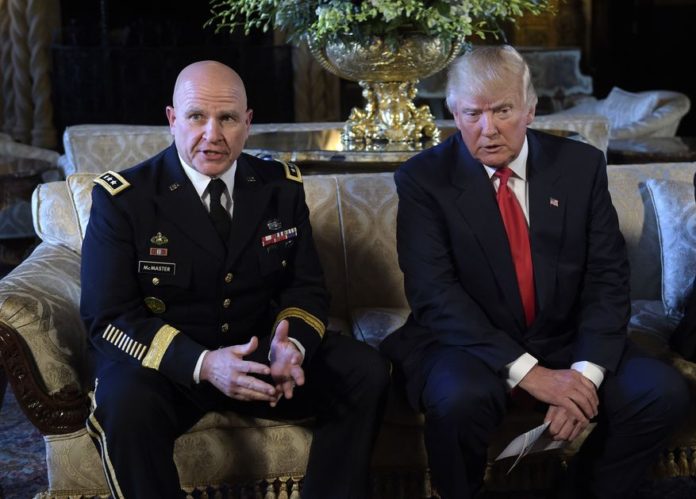After Donald Trump’s former national security adviser, Michael T. Flynn, resigned amidst the revelation that he had withheld information from Vice President Mike Pence, the president has been on the hunt for a replacement.
On Monday, he announced that he had chosen Lt. Gen. H.R. McMaster as the new National Security Adviser. McMaster is a widely respected military strategist that Trump called in his announcement “a man of tremendous talent and tremendous experience”.
General McMaster has been considered one of the Army’s most renowned intellectuals. His first major foray into public view came when he offered a major criticism of the Joint Chiefs of Staff during the Vietnam War. He also wrote a well-known book called “Dereliction of Duty” about the war. He later came into view again when he criticized President George W. Bush’s push for war in Iraq.
In counterterrorism efforts as a commander, McMaster has been praised for his ability to provide an alternate strategy for stamping out insurgents in Iraq. His ideas would shift the entire counterterrorism approach that was being used by Gen. David H. Petraeus – and consequently, there would be a major shift in luck for the U.S. in a war they were losing.
Since July 2014, McMaster had been serving as the director of Army Capabilities Integration Center in Virginia at Fort Eustis. Alongside president Trump as the announcement was made, McMaster said of the opportunity:
“What a privilege it is to be able to continue serving our nation. I’m grateful to you for that opportunity, and I look forward to joining the national security team and doing everything that I can to advance and protect the interests of the American people.”
McMaster may have his work set out for him. Reports indicate that the National Security Council that he will be taking over is both short staffed and facing internal turmoil.
Trump’s choice to pick McMaster falls right in line with much of the rhetoric we have heard from the president about U.S. foreign policy. In general, Trump has been critical of U.S. foreign policy as it has been conducted in the past. He was also a critic of the Iraq War during his campaign.
The move did come as a, perhaps good, surprise to many for other reasons, however. Donald Trump is widely recognized as a very authoritarian-type political leader – yet General McMaster is certainly someone who isn’t afraid to question authority.
With the Trump administration’s policies on relations with Russia in the news, it’s notable to look at McMaster’s former statements on the nation. Last year, McMaster had the task of studying Moscow and the resurgence of Russia – something that the Pentagon was fairly surprised about. On his findings, McMaster said:
“It is clear that while our Army was engaged in Afghanistan and Iraq, Russia studied U.S. capabilities and vulnerabilities and embarked on an ambitious and largely successful modernization effort.”
This demonstrates extra-keen knowledge about Russia in a time when they are a dominant influence in conversations about foreign policy, even for a military expert. One person who wasn’t surprised about Trump’s pick said he thought McMaster was the most likely choice after his first pick post-Flynn declined. Publication Foreign Policy’s Thomas Ricks said:
“He has good combat experience, he was a good trainer, and he led the 3rd Armored Cavalry Regiment well in his deployment to Iraq, most notably in pacifying Tell Afar, to the west of Mosul.”




